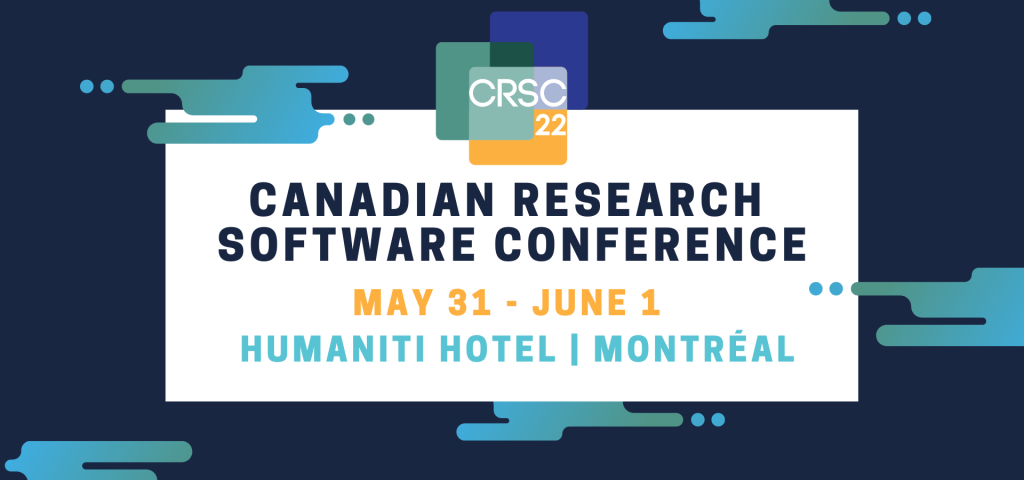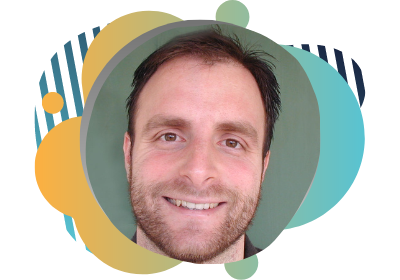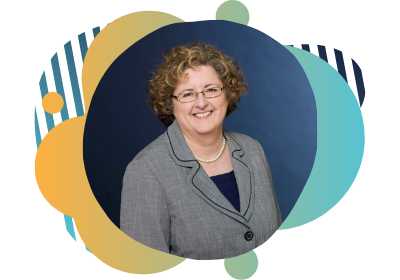| 7:30 – 9 a.m. ET | Breakfast and Registration | |
| 9 – 9:15 a.m. ET | Opening Remarks and Welcome | Jim Ghadbane
President and CEO, CANARIE
Erik Bitmanis
Program Manager, Private Sector Innovation, CANARIE |
| 9:15 – 10:15 a.m. ET | Keynote: Past, Present, and Future of AI: An Audio and Music Perspective
This talk provides an overview of 20 years of audio and music analysis research, using techniques from artificial intelligence. In addition to discussing well-known topics, like music classification and recommendation, more exotic applications will be covered such as automatically detecting when rats laugh, analyzing years of recorded orca vocalizations, teaching a virtual violinist to bow, and making robots that can listen and play music. Through these applications of audio and music analysis, to the talk will reflect on the history of AI and speculate on the future challenges and opportunities in audio and music research, as well as AI in general. | George Tzanetakis
Professor, Department of Computer Science, University of Victoria |
| 10:15 – 10:45 a.m. ET | Networking Break and Poster Sessions | |
| 10:45 – 11:05 a.m. ET | Preservation of Research Software
Research data management is an increasingly common topic of discussion, as Canadian funders and other research bodies try to ensure the long-term accessibility and usefulness of data generated in their research programs. However, much less time is spent thinking about the long-term importance of research software. The preservation of research software is just as important to ensure the lasting impact of Canadian research. This talk will discuss the importance of research software preservation and highlight some Canadian and international initiatives that point to a possible future approach to ensure that research software remains useful over time. | Steve Marks
Digital Preservation Librarian, University of Toronto |
| 11:05 – 11:25 a.m. ET | From pydns to DNS.jl: How We Translated Our Python Package to Julia
Julia is a relatively new programming language, originally developed for the computational science community. Julia’s main goal has been to solve the “two-language problem” – the language used for prototyping is different than the one used to write performance-critical parts of the software, due to slowness of dynamic languages like Python. Also, the composability offered by Julia allows for writing architecture-agnostic code that natively runs on CPU and GPU. This talk will explain how pydns was translated to Julia and the benefits. | Amin Sadeghi
Postdoctoral Researcher, University of Waterloo |
| 11:25 – 11:45 p.m. ET | A Holistic Approach to Pain Relief for Research Software Developers
Developing sustainable research software is painful. Pain points include not enough time for documentation and testing; insufficient experience with development or technology; frequent changes. One treatment is literate programming: developers write programs with human understandability as the first goal. For example, Org-mode with Babel. Another pain treatment is code generation, i.e., programs that write code. For example, Matlab and Maple have code generation facilities. In this holistic approach to pain management, literate programming and code generation are combined via a pervasively generative approach. It is about more than just code: documentation is generated as well as test scripts, test results, build files, reports, and other resources. The holistic approach addresses all pain points. | Spencer Smith
Associate Professor,
Computing and Software Department, McMaster University, McMaster University |
| 11:45 a.m. – 1 p.m. ET | Lunch and Networking | |
| 1 – 1:20 p.m. ET | Fostering Dynamic Interdisciplinary Co-creation Through Simulation of Complex Workflows into User-friendly Interfaces
Neuroimaging is a multidisciplinary collaborative process where scientists, clinicians and engineers collaborate on multidimensional and complex data mining. This presentation focuses on the non-technical issues surrounding integration of new clinical software into an existing software platform. We achieved the objectives of a CANARIE-funded RS3 project (facilitating neuropharmacological research) using a user-centered and agile software engineering approach. Our team building and management strategy helped us address three challenges successfully: Effective communication among clinicians and software engineers; Simplification of workflows across heterogenous softwares and data modalities; Facilitating training via simulation and visualization tools to accelerate scaling up. | Najmeh Khalili-Mahani
McGill Centre for Integrative Neuroscience, McGill University |
| 1:20 – 1:40 p.m. ET | Connecting Systems Together is No Small Feat
As online data repositories proliferate, the likelihood of data overlaps and redundancies grow. In the environmental information sector, even within just Ontario data, several systems with data overlaps occur. This presentation will review how the developers of a system focused on small, wadable streams connected, linked, or even synchronized to half a dozen other systems with related data. In support of the FAIR principles of data management, researchers are given easier access to related data sources. Mitigating related concerns, such as detecting broken links, improving sustainability, and reconciling remote system restructuring will also be discussed. | Doug Mulholland
Technical Manager, Computer Systems Group, University of Waterloo |
| 1:40 – 2:00 p.m. ET | crescent.cloud – Lessons Learned: From Pipelines to an Interactive Web Application
CReSCENT, CanceR Single Cell ExpressioN Toolkit (https://crescent.cloud), is an interactive and scalable web portal incorporating a containerized pipeline execution engine for standardized analysis of single-cell RNA sequencing (scRNA-seq) data. The analysis of scRNA-seq data requires high-performance computing infrastructure, high-quality reference datasets, and user expertise to write and run analyses – especially for cancer interpretation. This talk will discuss the necessary steps with CReSCENT to containerize and deploy complex, single-cell analyses via Common Workflow Language (CWL) pipelines within a React web application stack, powered by GraphQL. Current advancements in the stack, while scaling to a national Compute Canada cloud environment will also be covered. | Suluxan Mohanraj
Software Developer, Princess Margaret Cancer Centre
Martin Pham
Software Developer, University Health Network (UHN) |
| 2 – 2:05 p.m. ET | The Role of Computational Fluid Dynamics in Improving Clinical Decision Making: a journey
The information contained within clinical testing and imaging remains under-exploited that limits the efficacy of treatments. This talk will discuss applications where computational fluid dynamics is used to elicit the relationships between structure (imaging) and function (hemodynamic risks). The underlying computational technology and its future development requirements will also be covered. | Sanjay Kharche
Western University |
| 2:05 – 2:10 p.m. ET | Simplified Teaching and Research Application Platform
The STRAP project is an opinionated platform for deploying container-based applications with several key functionalities already provided. The goal is for researchers to develop and deploy applications without having to worry about boring stuff like authentication. This means that research computing staff don’t need to learn the deep details for each application, or worry that a researcher is leaking user credentials. Researchers and site administrators work in their areas of expertise, providing the researchers with institutional, social or federated authentication, centralized log in, and database services for free, by default and ready to go. STRAP uses well-known and well-supported technologies that run on cloud infrastructure managed by the UVic RCS team. | Drew Leske
Senior ARC Software Dev Team Lead, University of Victoria |
| 2:10 – 2:15 p.m. ET | Bring Your Own ID (BYOID) for Research Software
In some situations (e.g. research portals, longitudinal studies, etc.), research subjects may interact directly with research software. An account relationship with the subject may be needed. Establishing and maintaining research subject accounts can be fraught with problems. What if subjects could use existing account IDs? This talk will discuss using free and open source software to ‘federate’ IDs with the likes of Apple, Facebook, Google, and Microsoft. | Ryan McRonald
Senior Security Analyst, University of Victoria |
| 2:15 – 2:20 p.m. ET | What’s Up with All These Researchers Using Our Open Source Software?
This lightning talk will blitz through what makes the technology developed at reelyActive attractive to researchers, and what part, if any, open source plays. The talk will also discuss why a for-profit startup choose to publish and not patent their own innovations and what researchers have achieved in hospitals, service stations, construction sites, experimental stores, preschools, and even buses and what these all have in common. | Jeffrey Dungen
Co-founder and CEO, reelyActive |
| 2:20 – 2:50 p.m. ET | Networking Break and Poster Sessions | |
| 2:50 – 3:10 p.m. ET | FreezeMan: A Software Approach to a Lab Information Management System
FreezeMan was originally conceived as a sample tracking system handling a high volume of COVID-19 samples received at McGill University, by tracking, organizing, and managing those samples. The platform is evolving into a new system that keeps track of data associated with experiments, instruments, quality control results and laboratory workflows. The presentation discusses the software challenges the development team encountered to keep up with evolution of the next generation sequencing research. Challenges include complex data modeling along with data ingestion and management, API support of open source and commercial bioinformatics tools, as well as scripting languages used by scientific researches and targeted user interfaces for lab technicians and managers. | Sebastian Ballesteros Ramirez
Software Developer, Canadian Centre for Computational Genomics (C3G) |
| 3:10 – 3:30 p.m. ET | A Lightweight Workflow Management Framework for Scientific Research Data Management
This talk describes ongoing work on the design of a lightweight, modular framework for the development of scientific research data management workflows on distributed computing resources within a single security domain. The Lightweight Workflow Management (LWM) framework separates data management and data processing functionality by applying basic results from Petri net synthesis. The resulting loose-coupling of processing and data management subsystems minimizes the need for complex workflow coordination infrastructure. Implementation decisions will be described for four different distributed architectures. We will end by explaining how this approach has made it possible to customize metadata management databases (endpoints for many management workflows) to individual projects needs. | Ian Percel
Lead Research Software Developer, University of Calgary
Xiaofang (Ada) Xing
Research Software Developer, University of Calgary |
| 3:30 – 3:50 p.m. ET | Leveraging Open Source Software for the Humanities and Social Sciences: The Canadian HSS Commons
This talk will examine the open source software behind the Canadian Humanities & Social Sciences (HSS) Commons—an in-development, national-scale, bilingual space that combines elements of social networking sites and institutional repositories. In particular, the talk will explore the challenges of adapting software originally developed in the US, for STEM fields, to meet the needs of Canadian HSS researchers (drawing on examples from work with CANARIE and other partners). The team’s interest in developing digital research infrastructure with functionality and design that is responsive to community needs, will also be covered. There is an increasing awareness of how such infrastructure can be leveraged to support more open, collaborative forms of RDM in Canada and beyond. | Graham Jensen
Mitacs Elevate / Accelerate Industrial Postdoctoral Fellow in Open, Collaborative Scholarship (Arts & Humanities), University of Victoria |
| 3:50 – 4:10 p.m. ET | Research Web Application Development: A Hybrid Approach
With the increasing need to enable shareability and collaboration in research, there is a growing requirement for research-based tools to adopt web-based applications. The portability of such applications allows easy user data management, maintenance, open access and the ability to collaborate from anywhere in the world. However, there is also a need to address security of the information being collected for research purposes through such web applications. There is often a great dilemma when it comes to technological choices for such development work. The framework allows the deployment of features that includes synchronous collaboration, access management, open access, maintainability, and customizability of the web app, with a rich user interface and low code for researchers. | Paul Mercier
IT Manager, University of Ottawa |
| 4:10 – 4:30 p.m. ET | FRDR Sensitive Data Project
The Federated Research Data Repository (FRDR) Sensitive Data Project aims to improve sensitive data access and management for researchers and institutions. This national project has two main components: a zero-knowledge encryption platform to support data security, and a policy development framework to support collaboration and coordination among institutions. The aim is to provide a safe and reliable sensitive data repository service, and to work collaboratively with partners to ensure the service meets the needs of researchers, institutions, and stakeholders. The FRDR Sensitive Data Project is inviting Canadian post-secondary institutions to participate in the pilot. | Victoria Smith
Policy, Privacy and Sensitive Data Coordinator, Digital Research Alliance of Canada |
| 5 – 7 p.m. ET | Reception (Foyer) | |






